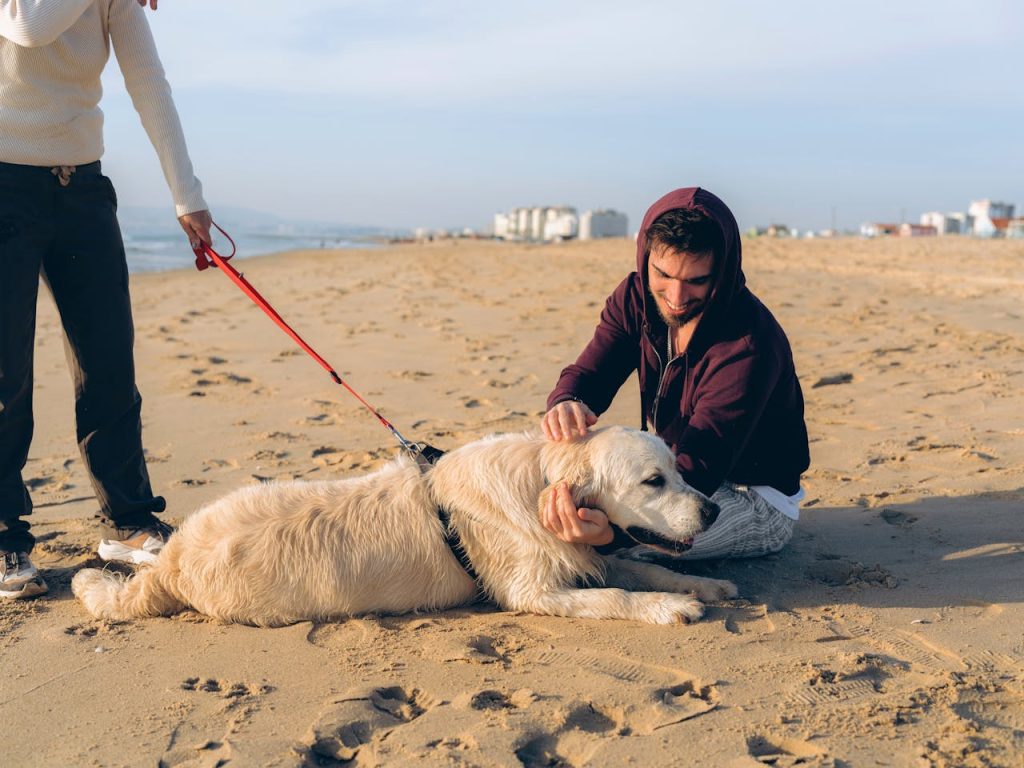What you should know is that; no matter how much you love your pup, nobody likes dealing with dog diarrhea.
While it is often a minor issue, in some cases, it can be an indication of an emergency situation.
In this blog post, we’ll discuss when dog diarrhea is a cause for concern and what to do if it is an emergency.
Contents
Diarrhea In Dogs

When is Dog Diarrhea an Emergency? This is an alarming question for most of us that are dog pet owners.
Diarrhea in dogs can be a sign of a serious medical condition and should always be taken seriously.
If your dog has diarrhea, it can be an indication of an underlying medical issue or simply a dietary problem.
If your dog is experiencing diarrhea for more than 24 hours or if it is accompanied by vomiting, lethargy, or fever, it is a medical emergency and you should take them to the vet immediately.
Related Article:
- Do chickens pee?
- Keeping Button Quail As Pets
- Dogs and Chicken Broth; Is it safe? 4 Beneficial Reasons
- Can Dogs Eat Arugula; And 13 Other Healthy Foods For Your Pet
Diarrhea is also a sign of dehydration, parasites, or a reaction to the medication.
If your dog is having diarrhea and you are unsure of the cause, it is best to contact your vet or an emergency veterinary clinic right away.
Make sure to provide your dog with plenty of water to help keep them hydrated if they are having diarrhea. Additionally, keep an eye on your dog’s diet, as changes in their food can cause diarrhea.
It’s important to take your dog to the vet if you are concerned about its health, as diarrhea can be a sign of something serious.
The sooner you get your pup to the vet, the quicker it can start feeling better.
What are the Different Types of Diarrhea In Dogs?
Regarding your dog’s health, it is important to pay close attention to their bowel movements.
Diarrhea can be a sign of a serious underlying medical condition, and in some cases, it may require emergency care.
- Acute diarrhea is the most common form and is usually caused by a dietary indiscretion or an infection. This form of diarrhea typically resolves itself within a few days without intervention.
- Chronic diarrhea is a more severe form of diarrhea typically caused by a food allergy, pancreatic insufficiency, or some other underlying medical condition. This type of diarrhea often requires veterinary intervention and may require long-term treatment.
- Dyschezia is another type of diarrhea caused by an inability to digest or absorb food properly. This indicates an underlying medical problem that needs to be addressed.
- Colitis is a type of inflammation of the large intestine and is often accompanied by diarrhea. It may be due to irritants or parasites and is typically treated with antibiotics.
- Intussusception is a serious medical emergency and requires immediate veterinary care. This condition is caused by a part of the intestinal tract folding over itself and trapping fecal matter.
If your dog has diarrhea, it is important to pay close attention to its symptoms and seek medical attention if diarrhea persists or worsens.
READ; When Do Dogs Lose Their Baby Teeth No. 1 Answer
If your dog’s diarrhea is accompanied by other signs of distress, such as vomiting, fever, lethargy, or loss of appetite, it could be a sign of a more serious underlying medical condition and should be treated as an emergency.
Common Causes of Diarrhea In Dogs

Diarrhea in dogs can be a severe issue, and it’s important to be aware of when it could be an emergency. There are a few common causes of diarrhea in dogs, and if these aren’t treated quickly, it can lead to dehydration and other serious health issues.
One of the most common causes of diarrhea in dogs is eating something they shouldn’t have. Dogs may be tempted to eat something they shouldn’t, and this can lead to an upset stomach and diarrhea.
Eating too much too quickly can also cause digestive issues, leading to diarrhea. Stress can also affect the digestive system and cause diarrhea.
Parasites can also cause digestive issues, leading to diarrhea. Allergies to certain ingredients in food can cause diarrhea as well.
READ; Canine Vomiting Nothing Coming Up [Why; What To Do]
Bacterial or viral infections can also cause diarrhea in dogs. Certain medications can cause diarrhea as a side effect. Finally, pancreatitis is an inflammation of the pancreas and can cause diarrhea.
If your dog is experiencing any of the above symptoms, it’s important to take them to the vet as soon as possible. Diarrhea can quickly lead to dehydration and other serious health issues if not treated.
Treating Diarrhea In Dogs
Dog diarrhea can be a stressful experience for dog owners, but in most cases, it’s not an emergency. However, if you’re worried about the severity of your dog’s diarrhea, there are a few steps you can take to help them feel better.
Firstly, make sure your dog is drinking plenty of fresh, clean water and that you’re providing them with a bland diet of boiled white rice and boiled lean chicken.
Additionally, you should keep their environment clean and free of fecal matter and consider adding a probiotic supplement to their diet.
If your dog’s diarrhea persists for more than 24 hours or shows signs of dehydration or lethargy, then it’s important to seek emergency veterinary care.
Look out for signs of dehydration, such as dry noses, sunken eyes, and lethargy. It’s also essential to monitor your dog’s stool and report any changes to your vet.
With the proper care and attention, most cases of dog diarrhea can be treated effectively.
When to Contact Your Vet About Diarrhea In Dogs?
Dogs are usually relatively healthy and resilient, but they can occasionally suffer from diarrhea.
While it is often just a minor problem that can be treated at home, it is important to know when it could be a sign of a more severe condition.
If your dog has had diarrhea for more than 24 hours, this could be a sign of a more serious issue, and you should contact your vet.
It is also important to monitor your dog’s appetite and energy levels, as a lack of either could be indicative of a more severe condition. Additionally, observe the color of your dog’s stools. If they are black, tarry, or bloody, contact your vet immediately.
It is also important to monitor your dog’s behavior. If they appear to be in pain or straining to defecate, contact your vet immediately.
Additionally, monitor for dehydration. If your dog is not drinking or producing very little urine, then the question is; When is Dog Diarrhea an Emergency? needs immediate attention and you should contact your vet immediately using the contact form below.
Finally, monitor for other symptoms in dogs such as vomiting, fever, or lethargy. These could be signs of a more serious condition and should be addressed by your vet.
By monitoring your dog’s symptoms, you can ensure that any underlying issues are addressed as soon as possible.
A quick response can make a huge difference in your dog’s health and well-being. If you are ever in doubt, it is always best to contact your vet.
Ask a Vet
In case your Pet is Sick & Need Help we advocate you converse with a vet ASAP. JustAnswer means that you can discuss in real-time with veterinary consultants for a small price.
When is Dog Diarrhea an Emergency? The Conclusion
In some cases, diarrhea may be an ongoing problem for your pet. If your dog is suffering from chronic diarrhea, it is important to work with your veterinarian to determine the underlying cause and get the appropriate treatments to improve your pet’s health.
Your veterinarian may recommend dietary changes, medication, or other treatments to help your dog feel better.
It is essential to be aware of the signs and symptoms of dog diarrhea and to seek veterinary attention if it persists.
With prompt treatment, your dog can quickly feel better and return to normal health.


